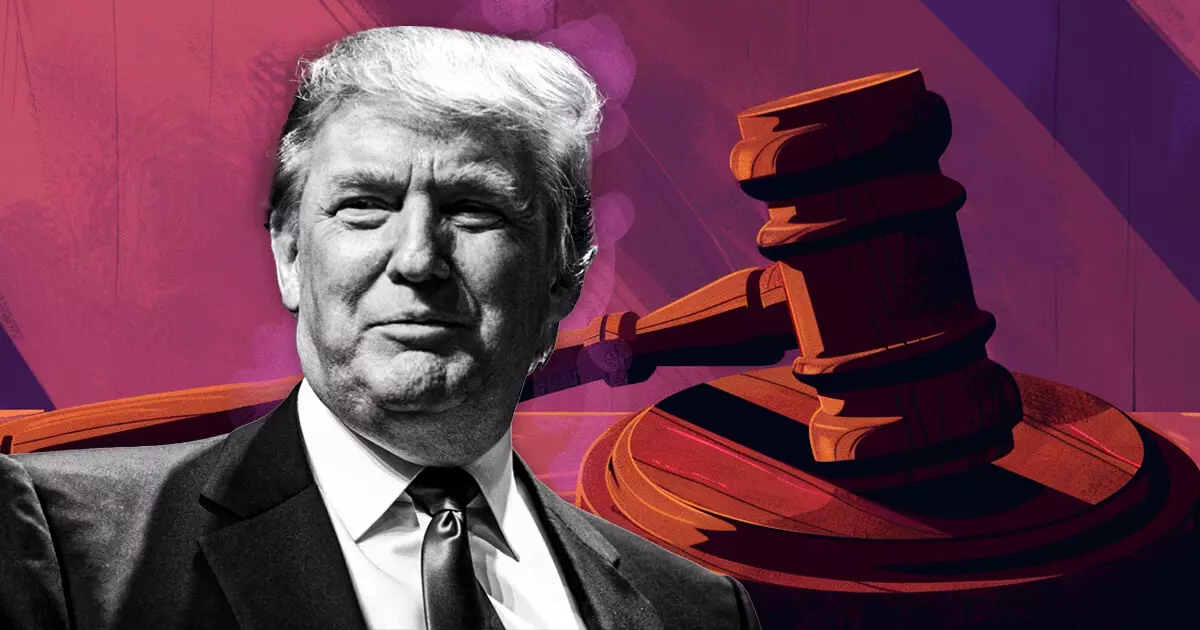The ever-evolving landscape of digital finance has drawn significant attention, particularly with high-profile figures like former President Donald Trump entering the arena. Trump’s decentralized finance (DeFi) project, World Liberty Financial, symbolizes a new venture into the complex realm of cryptocurrencies. However, it faces the formidable challenge of complying with stringent regulations outlined by the U.S. Securities and Exchange Commission (SEC). A recent commentary from SEC Commissioner Mark Uyeda highlights the intricacies of navigating this regulatory maze, providing insights into the broader implications for crypto enterprises in the United States.
Commissioner Uyeda has been vocal about the SEC’s role, asserting that the agency fundamentally operates as a disclosure regulator rather than a merit regulator. This distinction is crucial for understanding the operational framework that World Liberty Financial must adhere to. Unlike a merit regulator, which evaluates the inherent value or risk of specific projects, the SEC’s focus is primarily on transparency and disclosure standards.
Such a regulatory approach means that World Liberty Financial will need to go through the same rigorous processes as any other crypto venture in the U.S. The project must clearly articulate its business model, risks, and financial expectations to its stakeholders. This requirement raises questions about the transparency practices of the venture and whether it can effectively communicate complex financial information to investors who may not be entirely familiar with the intricacies of DeFi.
The political milieu surrounding Trump’s project adds another layer of complexity. With ongoing partisan divides, there are speculations that Democrats could leverage the SEC’s regulatory powers to scrutinize World Liberty Financial more intensely, particularly given Trump’s controversial political standing. This presents a dual challenge: not only must the project meet legal standards but it might also be subject to heightened scrutiny based on its political affiliations.
Uyeda’s statements reflect apprehension about the potential politicization of the regulatory framework. He urges that despite any partisan concerns, the SEC’s scrutiny will remain anchored in applying the law rather than a politically motivated agenda. However, the reality remains that the intersection of politics and regulation could complicate World Liberty Financial’s path, as Trump’s past performances and public perception inherently color investor sentiment.
Uyeda’s advice to Trump’s legal team—to hire competent lawyers—is a stark indication of the regulatory complexities looming ahead. Navigating the SEC’s demands will be arduous for World Liberty Financial as it contends with the established challenges facing the crypto industry. Regulatory ambiguity has been a significant hurdle for many businesses, posing risks that could dissuade investment and innovation.
Moreover, the SEC’s history of regulatory incursions raises valid concerns. If the commission’s criteria remain opaque, World Liberty Financial may struggle to instill confidence among prospective investors. Investors are increasingly wary of investing in projects lacking in regulatory clarity, resulting in skepticism regarding the viability and management of cryptocurrency ventures.
The environment for cryptocurrencies in the U.S. has increasingly been described as “toxic,” as noted by fellow SEC Commissioner Hester Peirce. This rhetoric speaks to the need for legislative reform that could foster a more conducive climate for innovation in the crypto sector. Some lawmakers have called for a joint advisory body to create a regulatory framework that unambiguously delineates guidelines for crypto projects.
The trajectory of World Liberty Financial, like many similar ventures, may ultimately hinge on the outcome of these broader regulatory discussions. If policymakers are amenable to synthesizing a clearer directive, it could ease the navigation process for startups looking to flourish in the U.S. crypto market.
World Liberty Financial stands at a crossroads where ambition meets compliance. While former President Trump’s aspirations for the project position it as a potential leader in the U.S. crypto landscape, the reality of stringent SEC regulations coupled with the complexities of political dynamics poses significant challenges. As the venture prepares to confront these hurdles, its success will likely depend on effective legal navigation and the SEC’s evolving stance on crypto regulation in the United States. The path forward is fraught with uncertainty, but with clarity in regulation, there is potential for innovation and growth in the ever-expanding world of decentralized finance.

